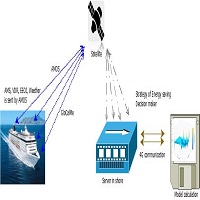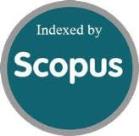The Strategy of Energy Saving for Smart Shipping
Keywords:
cargo loading, speed over ground, average draft, fuel consumption, energy efficiency operational index (EEOI)Abstract
This paper presents a real record and analysis to reduce carbon dioxide (CO2) emission and fuel consumption using the energy efficiency operational index (EEOI) for practical ships. With giant commercial tankers constantly launching into the sea, emission increase with the tonnage is unavoidable. More weight means more pollution. In the experiment, big data of Internet of Things (IoT) were collected to analyze the sailing conditions for over six months through global satellite communications while the ship sailed across the ocean. The results showed that deep draft results in a better performance than shallow draft; that is, the ship carries more cargo but consumes less fuel oil, as opposed to the traditional concept. Among the parameters, the draft and cargo mass interacts with the index to identify the fuel consumption at a constant speed; A draft between 11.5 m and 12 m was found to be optimum for this type of container ship. The EEOI is a metric tool to illustrate the variation of fuel consumption and an effective management strategy to reduce the CO2 emission quantity. Moreover, a constructive model using IoT technology and an energy efficiency management strategy presents an accurate big data basis to guide decision making on the vessel.

Published
How to Cite
Issue
Section
License
Submission of a manuscript implies: that the work described has not been published before that it is not under consideration for publication elsewhere; that if and when the manuscript is accepted for publication. Authors can retain copyright in their articles with no restrictions. is accepted for publication. Authors can retain copyright of their article with no restrictions.
Since Jan. 01, 2019, AITI will publish new articles with Creative Commons Attribution Non-Commercial License, under The Creative Commons Attribution Non-Commercial 4.0 International (CC BY-NC 4.0) License.
The Creative Commons Attribution Non-Commercial (CC-BY-NC) License permits use, distribution and reproduction in any medium, provided the original work is properly cited and is not used for commercial purposes.



